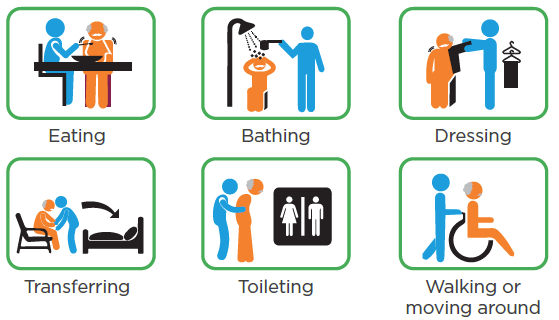What is Chronic Care?
It’s a term used to describe services people need when they’re unable to care for themselves. This can range from help at home with daily activities like meal preparation and housekeeping, to personal care services like bathing and dressing. Chronic care also is provided in assisted living facilities, which are home-like settings that offer safety and security, plus nursing homes that provide round-the-clock skilled nursing care.

